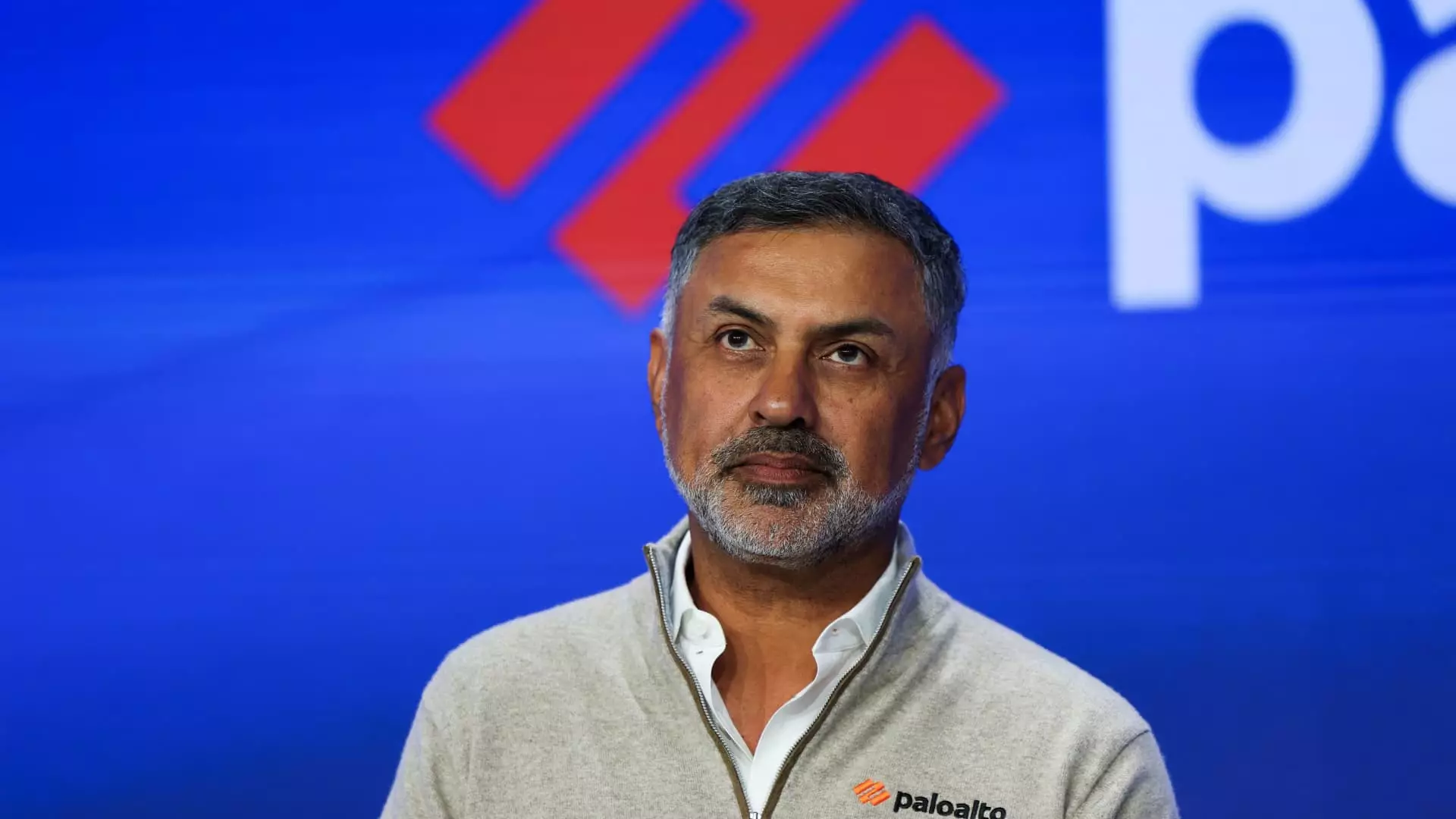Palo Alto Networks, a prominent player in the cybersecurity realm, recently showcased an image of resilience by outperforming analysts’ expectations in their latest earnings report. Their revenue surpassed forecasts, and guidance suggests a promising future. However, beneath this veneer of success lies a complex reality that warrants a skeptical lens. Growth figures, while seemingly robust, mask the underlying challenges that threaten long-term stability. The spike in revenue, for instance, is bloated by strategic, and arguably aggressive, acquisitions—most notably the planned $25 billion purchase of CyberArk. These moves, while positioning the company for market dominance, also introduce significant financial and operational risks, especially amid a volatile geopolitical cybersecurity landscape.
Furthermore, the company’s reported net income decline from $358 million to $254 million signals a troubling profitability squeeze. Spending on acquisitions and innovation is eating into margins, and without a clear path to sustainable profit, this growth could soon become a mirage. The optimistic outlook for the upcoming quarter and fiscal year, although encouraging, could be overly reliant on short-term market sentiment rather than solid fundamentals. Investors should be wary of the company’s tendency to leverage hype; the recent stock surge post-earnings evidences a market response driven more by hope than concrete progress.
Leadership Changes: A Sign of Both Transition and Turmoil
The retirement of Nir Zuk, the visionary founder and CTO, signifies both a strategic shift and potential turbulence for Palo Alto Networks. Succession planning is vital, but replacing a pioneering technologist with Lee Klarich might introduce unforeseen challenges. Change at this level often stirs uncertainty, and while the new CTO’s experience is undisputed, it remains to be seen whether the leadership transition can sustain the innovative momentum that distinguished Zuk’s tenure.
Moreover, the departure coincides with the company’s most ambitious acquisition spree, an effort that could stretch internal resources thin. The decision to marry cutting-edge identity security with broader network protection reflects an understanding of the evolving threat landscape; however, the integration complexities and the execution risks associated with these mega-deals cannot be understated. How the new leadership navigates these challenges will be pivotal in defining Palo Alto’s future trajectory.
Market Sentiment vs. Real-World Implications
While the stock’s 6% jump post-earnings might appear as validation of Palo Alto’s strategic direction, it also highlights a disconnect between market optimism and underlying business health. The broader tech sector and cybersecurity industry are increasingly fraught with volatility, regulatory scrutiny, and competitive pressures. A single quarter’s better-than-expected results do little to alter these foundational concerns.
Additionally, the company’s hefty purchase obligations and the sheer scale of its planned investments could hamper its agility. The market’s enthusiasm risks igniting a cycle of inflated expectations that may, in the long term, prove unsustainable. As a centrist voice in the liberal political spectrum, I believe corporate power and aggressive expansion must be balanced with genuine concern for stability, innovation, and ethical responsibility—areas where Palo Alto’s current trajectory raises some questions.
While Palo Alto Networks’ latest financial performance flashes moments of triumph, a deeper critical assessment reveals a landscape riddled with uncertainties. Growth driven by aggressive M&A, leadership transitions, and market exuberance ought to be approached with cautious skepticism. The true challenge lies ahead: transforming short-term wins into resilient, long-term leadership in cybersecurity without succumbing to hubris or reckless expansion.

